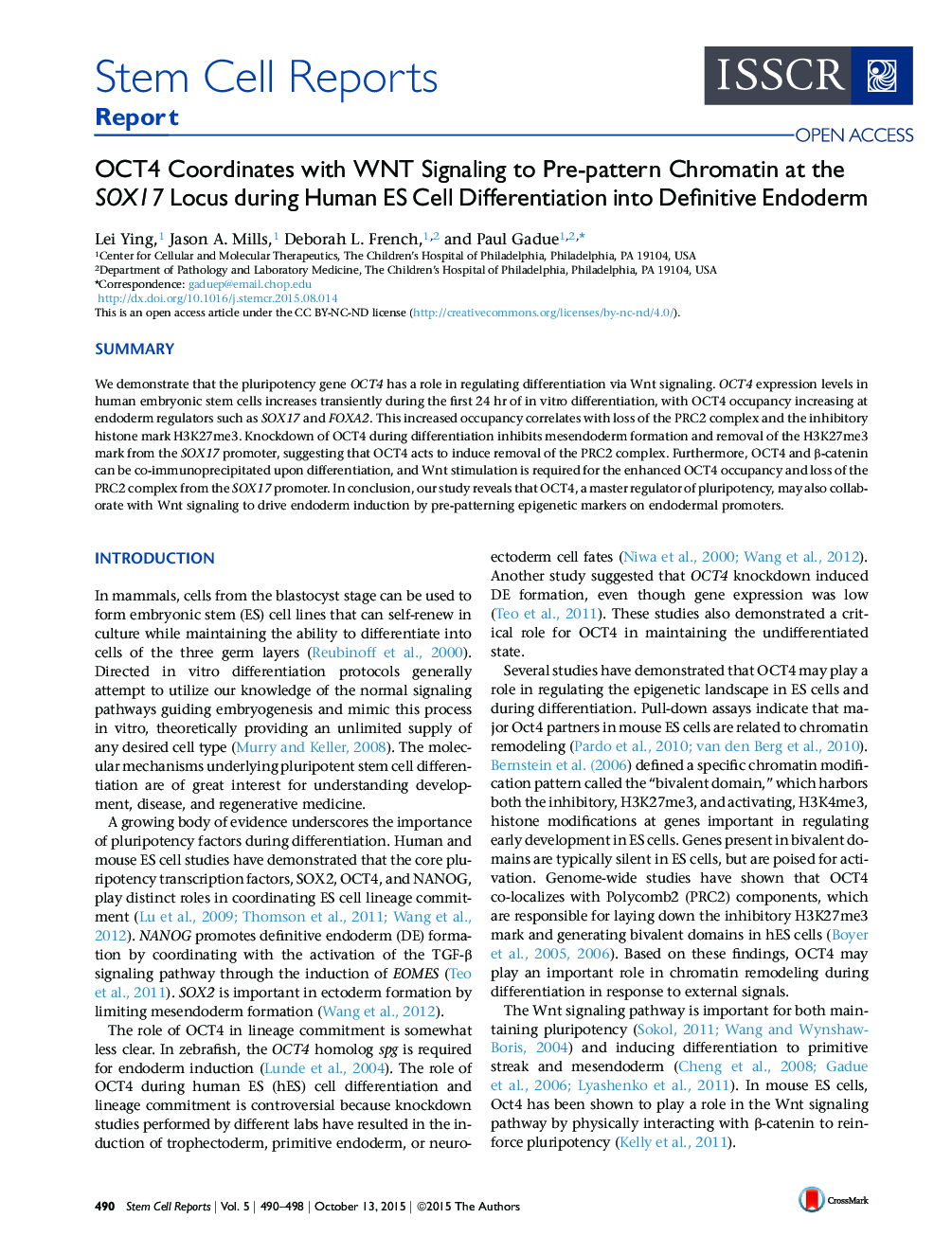| Article ID | Journal | Published Year | Pages | File Type |
|---|---|---|---|---|
| 2093417 | Stem Cell Reports | 2015 | 9 Pages |
•OCT4 occupancy increases at endoderm genes early in ES cell differentiation•The PRC2 complex is lost from OCT4 sites on endoderm genes during differentiation•OCT4 associates with β-catenin during ES cell differentiation•OCT4 and Wnt are both required for mesendoderm induction
SummaryWe demonstrate that the pluripotency gene OCT4 has a role in regulating differentiation via Wnt signaling. OCT4 expression levels in human embryonic stem cells increases transiently during the first 24 hr of in vitro differentiation, with OCT4 occupancy increasing at endoderm regulators such as SOX17 and FOXA2. This increased occupancy correlates with loss of the PRC2 complex and the inhibitory histone mark H3K27me3. Knockdown of OCT4 during differentiation inhibits mesendoderm formation and removal of the H3K27me3 mark from the SOX17 promoter, suggesting that OCT4 acts to induce removal of the PRC2 complex. Furthermore, OCT4 and β-catenin can be co-immunoprecipitated upon differentiation, and Wnt stimulation is required for the enhanced OCT4 occupancy and loss of the PRC2 complex from the SOX17 promoter. In conclusion, our study reveals that OCT4, a master regulator of pluripotency, may also collaborate with Wnt signaling to drive endoderm induction by pre-patterning epigenetic markers on endodermal promoters.
